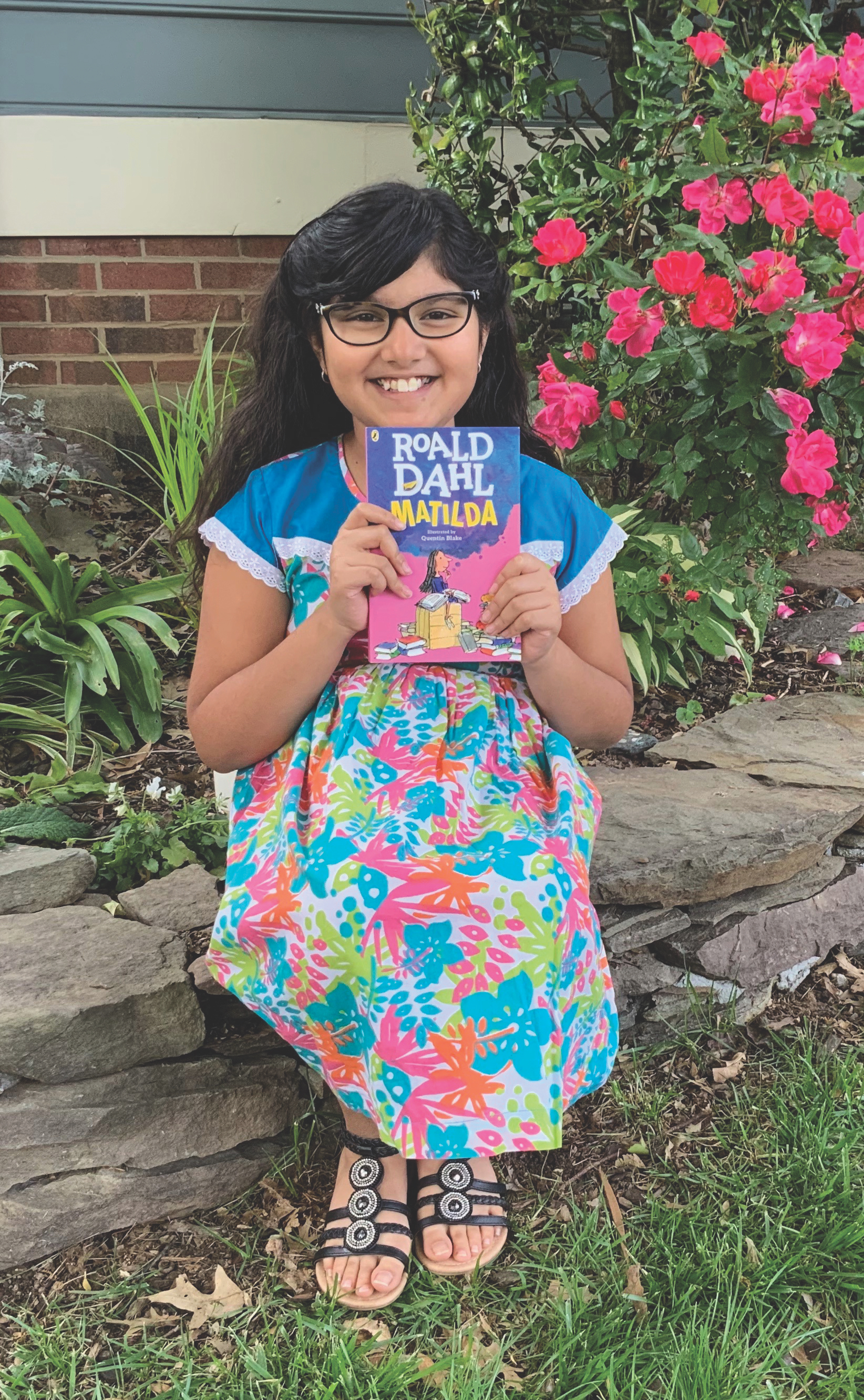Reading and connecting with characters’ emotions help kids develop empathy and openness.
 A Human Experience
A Human Experience
Renowned author David Foster Wallace once said, “Fiction is about what it means to be human.” This idea that reading helps to build emotional intelligence and connections with others’ experiences has been researched and validated through numerous and extensive studies.
Much of the research focuses on young readers and the crucial role literacy plays in their emotional developmental. A local young reader, 11-year-old Nidhi Vasudevan (pictured with one of her favorite books), had a lot to say about how reading has affected her own emotional development.
What Does Empathy Mean?
“I think it is really important to understand how others feel... to understand what other people’s emotions are,” Nidhi responded when asked what empathy means to her. She then shared how the picture book Chrysanthemum by Kevin Henkes made her feel sorry for the main character when others could not pronounce her name right. “Sometimes I feel like her when someone mispronounces my name,” Nidhi explained.
Lessons from Favorite Characters
Nidhi’s favorite book characters include Harry Potter, Big Nate, Matilda and the girls from the Babysitters Club. She described how bad she felt for Harry Potter and Matilda when their caretakers treated them poorly. On the opposite end of the spectrum, she felt very happy for them at times, too. “I felt really happy for Matilda when Miss Honey adopted her,” Nidhi said.
These connections also affect her in her own life. Nidhi noted that she is more comfortable sharing her problems with friends after reading about the Babysitters Club doing so and that Big Nate taught her not to lie.
Why Is This Important?
“It is important to make connections with different book characters,” Nidhi emphasized. “If you read a lot of books you can understand how other people feel.” She also stressed that empathy can be taught to kids who can’t even read yet, suggesting picture books like Leonardo the Terrible Monster and the Elephant and Piggie series by Mo Willems for helping early readers improve their emotional intelligence.
Many of Nidhi’s recommended reads and more books that promote emotional development and intelligence can be accessed digitally in FCPL’s OverDrive collection. For assistance or help with more suggestions, use the Ask Your Library online chat service to connect with a librarian.

